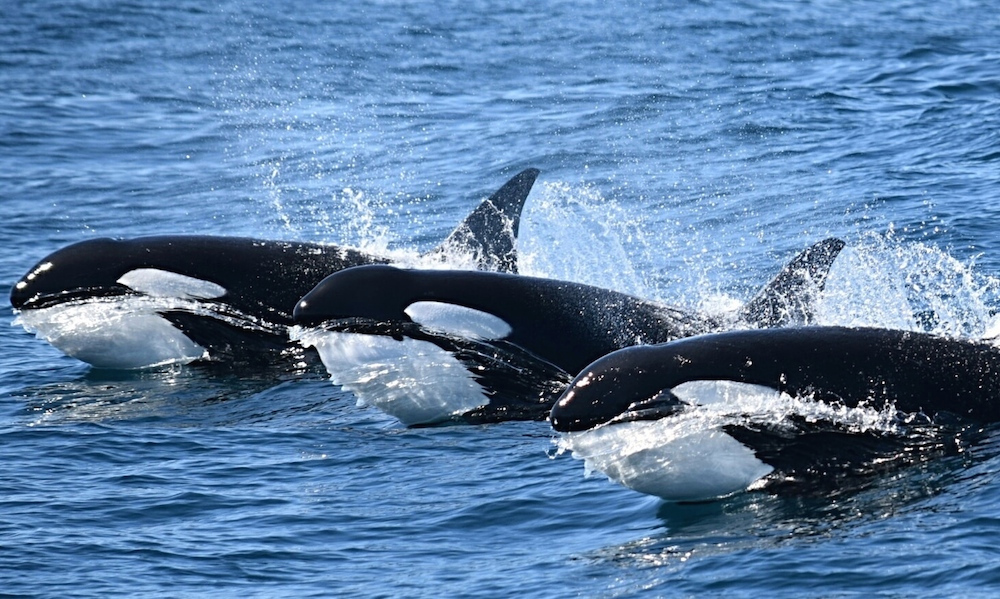Probably the smartest animal on Earth, other than humans, is the Orca, projectively known as “Killer Whales.” Of course smarts, as seen with humans, is a very different thing than intelligence.
Just what is intelligence, and would an extraterrestrial species recognize Homo sapiens as an intelligent species?
Here on Earth, Orcas never kill humans in the wild, though they have killed a few people in captivity. Why in both cases?
One answer scientists give to the first case is that “Killer Whales seem to follow rules that go beyond instinct and border on culture, and that it may very well be that within ‘orca culture’ there is a social norm not to go after people.”

Since they’re much bigger and stronger than we are, have sharper teeth, and are carnivores, that rather astounding statement simply begs the question.
It’s been reported, “Many nomadic killer whales have gravitated to humans, bonding with them and playing games.” Perhaps there are clues in that behavior.
Different orca cultures hunt different animals, and orcas have even been observed hunting, killing and scaring the bejesus out of Great Whites off the coast of California. They recognize members of their own group and mix with members of other groups – without the tribalistic warfare that characterizes man.
Given how man is plundering the planet, we’re running out of room for error, and urgently need to understand our place in nature, and the universe.
With respect to the second part of the question, the comforting idea that orcas have killed their trainers out of “play getting out of hand” just doesn’t wash. If orcas are smart enough to have distinct cultures, they’re smart enough to go bad under terrible conditions, like people do, and feel hatred and the intent to kill, like people do.
At this point we need to make a leap of insight and imagination. As has been reported, “The most curious subplot in the news right now is the admission, at the most senior levels of the United States government, that the military services have collected visuals, data and testimonials recording flying objects they cannot explain, and that they are investigating these phenomena seriously.”
Apparently we’re being watched, and the watching is intensifying as the human crisis intensifies. We need to go beyond such silliness as the sci-fi novelette, “The Great Silence,” which imagines a parrot talking to the humans through the Arecibo Observatory in Puerto Rico.
“We’re a nonhuman species capable of communicating with them,” the parrot muses. “Aren’t we exactly what humans are looking for?”
With the orca, we don’t need the metaphor of a parrot spitting our words back at us, since we have a near equal in the animal kingdom that has a real-life affinity for us as humans.
So what’s the basis of the affinity, and why do I say the orca our near equal?
In the seas, which make up 70% of the Earth’s surface, the orca is the apex predator. They clearly recognize another apex predator in Homo sapiens, and even seem to defer to us, since very little goes into orca training in captivity.
It’s very doubtful however, that orcas possess symbolic thought and mentally construct and live in terms of a self, as humans do. That certainly doesn’t makes us better or more intelligent than them. Transcending thought and self-centered activity is the next level of consciousness that the human species has yet to attain.
In that vein, it may well be that extraterrestrial intelligence is observing Homo sap to see if we’ll make the transition to Homo sapiens — wise humans — the name we prematurely gave ourselves.
In the meantime, Orcas are a nonhuman species communicating with humans on Earth, though we’re still killing them in our planetary rapaciousness and capturing them for our entertainment. Clearly that’s not a sign of an intelligent species.
Intelligence is, at bottom, the realization of a spiritual and philosophical capacity, and as humans we aren’t coming up to the mark. Why? Part of the reason is that in this obsessively externalizing civilization, most people don’t want to look within, despite or because of the malarkey about “wise self.”

Materialists, who insist that life is merely chemistry and randomness, set up and knock down the easy straw man of organized religion and its belief systems. They go further however, maintaining that mystical experiencing “fundamentally opposes the impersonal nature of the universe.”
That’s deeply mistaken, because mystics do no such thing. In fact, we maintain that experiencing the numinous can only occur when the personal dimension is completely set aside, and the noisy, self-centered mind falls completely silent.
Martin LeFevre

